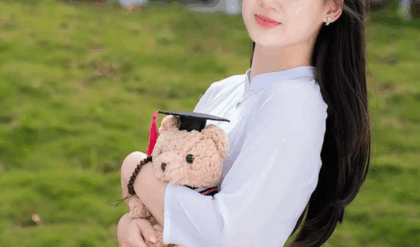In a surprising turn of events during the recent festival of Rakshabandhan, Bollywood actress Sonakshi Sinha distanced herself from her brothers, Luv and Kush Sinha, opting instead to celebrate the occasion with her husband. This decision has sparked widespread discussion and speculation among fans, media, and the entertainment industry alike. The choice to prioritize her husband over her brothers has raised questions about family dynamics, relationships, and the evolving nature of celebrations in contemporary society.
Rakshabandhan is traditionally a festival that symbolizes the bond between brothers and sisters in India. Sisters tie a protective thread, known as “rakhi,” around their brothers’ wrists, and in return, brothers pledge to protect and support their sisters. It is a day filled with love, promises, and familial ties, celebrated with great enthusiasm across the country. For many, it is a time to honor and strengthen the bonds of siblinghood. Sonakshi’s decision to step away from her brothers on such an important day has left many wondering about the motivations behind her choice.
Sonakshi Sinha, the daughter of veteran actor Shatrughan Sinha, has made a name for herself in the Bollywood industry. With a series of successful films under her belt, she has become a well-known figure in Indian cinema. However, her personal life has often taken center stage in the media, especially following her marriage to actor and businessman, Aayush Sharma. This marriage has been a significant shift in her life, indicating a new chapter where her priorities may now differ from those of her family.
Reports suggest that Sonakshi chose to spend Rakshabandhan with her husband instead of her brothers, which has stirred mixed reactions. While some fans have expressed their disappointment at her decision, others have defended her right to prioritize her marital relationship. In a world where family dynamics are continually evolving, it is not uncommon for individuals to create new traditions and redefine relationships as they embark on new journeys in life, including marriage.
The bond between siblings is often cherished, but the introduction of a spouse can sometimes shift the dynamics within a family. Sonakshi’s choice to celebrate Rakshabandhan with her husband may reflect a broader trend seen in many families, where married individuals begin to cultivate their own traditions, sometimes at the expense of long-standing familial practices. For many, marriage marks the beginning of a new family unit, and the responsibilities to that unit can sometimes take precedence over those towards the original family.
Critics of Sonakshi’s decision might argue that holidays like Rakshabandhan are meant to reinforce family bonds and that her choice could be seen as a departure from traditional values. Such perspectives often emphasize the importance of maintaining familial connections, especially on significant occasions. However, it is essential to recognize that the definition of family and commitment can vary widely from one individual to another. For Sonakshi, the celebration of Rakshabandhan with her husband may symbolize a new commitment and the formation of her own family unit, which is equally valid.
This situation brings to light the evolving nature of relationships in modern society, particularly in the context of marriage. As individuals grow and evolve, their priorities often shift. The traditional view of family structures is changing, with many individuals finding ways to balance their relationships with both their families of origin and their families of choice. Sonakshi’s decision could be seen as a reflection of this trend, where personal happiness and new commitments take precedence in one’s life.
Moreover, the media’s scrutiny of Sonakshi’s actions highlights the pressures faced by public figures. Celebrities often find themselves under the microscope, with their personal choices analyzed and critiqued by the public. This can create an environment where individuals feel they must justify their decisions regarding family and relationships. Sonakshi’s choice to celebrate with her husband instead of her brothers may have been made with careful consideration of her new life and the direction in which she wants to take it.
In a society that increasingly values individuality and personal happiness, Sonakshi’s actions may resonate with those who believe in prioritizing one’s own happiness and well-being. The modern understanding of family allows for flexibility and adaptation to changing circumstances. By choosing to celebrate Rakshabandhan in a way that feels right for her, Sonakshi is asserting her autonomy and embracing her new role as a wife.
As the discourse around her decision continues, it is essential to approach the topic with empathy and understanding. Every family has its unique dynamics, and what works for one person may not work for another. Sonakshi’s choice reflects her values and priorities at this stage in her life, and it is crucial to respect her decision without casting judgment.
Ultimately, the conversation surrounding Sonakshi’s decision to distance herself from her brothers on Rakshabandhan can serve as a broader discussion about the nature of family relationships in today’s world. As individuals navigate their paths through life, they may find that their priorities change, leading to new traditions and ways of celebrating. The importance of communication, understanding, and respect within families cannot be overstated, as these factors contribute
Watch video:





